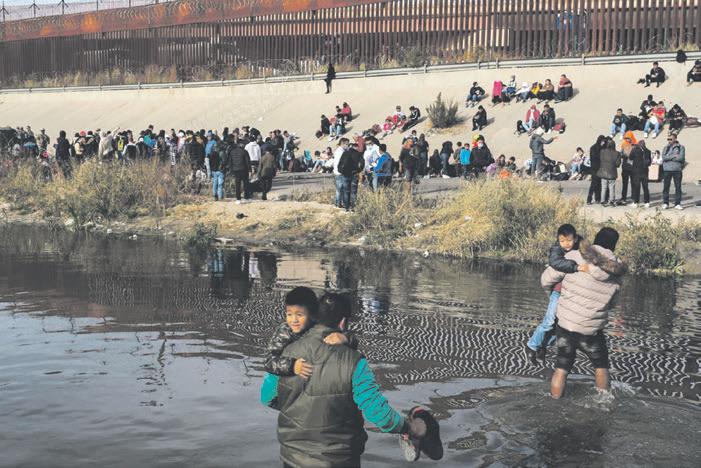
1 minute read
Harris announces funding to address root causes of migration crisis
By MICHAEL D. SHEAR
Vice President Kamala Harris earlier this week announced almost $1 billion in new pledges by private companies to support communities in Central America, part of the Biden administration’s effort to keep migrants from fleeing toward the U.S. border.
Advertisement
Ten companies, including Nestle, Target and Columbia Sportswear, said they would collectively spend $950 million on projects in Guatemala, Honduras and El Salvador to support farmers, create textile jobs and invest in telecommunications and other industries.
The effort comes as crossings at the U.S.-Mexico border remain at record highs, posing logistical and humanitarian challenges to President Joe Biden and drawing intense criticism from Republicans on Capitol Hill.
House Republicans have begun to investigate the administration’s efforts at the border and said they might pursue the impeachment of Alejandro N. Mayorkas, the homeland security secretary.
The vice president’s announcement came Monday afternoon as she met with a number of companies.
It added to the commitments from businesses through the Partnership for Central America, a nonprofit organization that was created in mid-2021 to facilitate Harris’ efforts to rally support for the region. The partnership had previously announced about $3 billion in future spending from a range of companies.
The idea, according to the vice president’s aides, is to address what she calls the root causes of migration: poverty, corruption, climate change and political instability that drives people to leave their homes in search of a better life.
Administration officials said the program had already gener-
Migrants ated results, though they acknowledged on a call with reporters that they could not specifically document those effects. Since mid-2021, officials said, migration from the three countries was down 71%.
“As part of this public-private partnership, approximately 47 companies and organizations are collaborating across financial services, textiles and apparel, agriculture, technology, telecommunications and nonprofit sectors to strengthen the region’s economic security,” the White House wrote in a fact sheet released Monday.
But even those participating in the effort say there are challenges to its success, especially in the short term.
Ajay Banga, the former executive chair of Mastercard and










